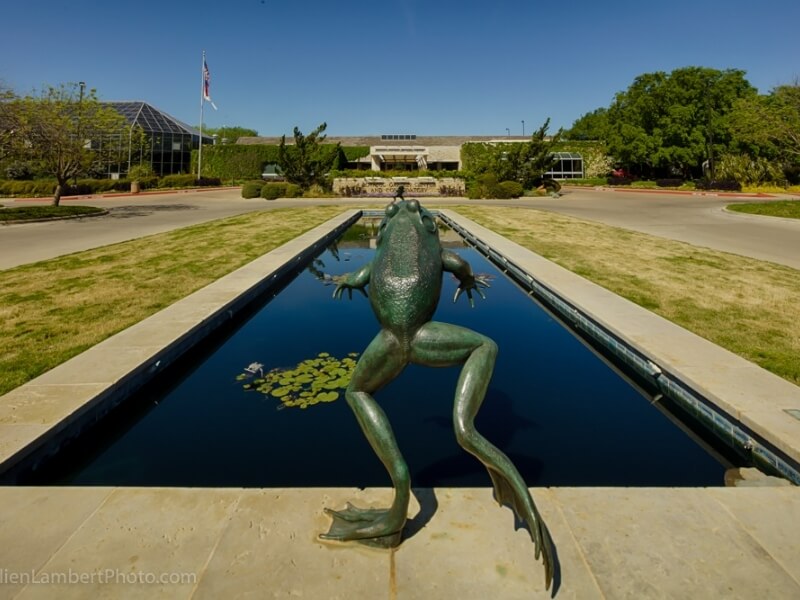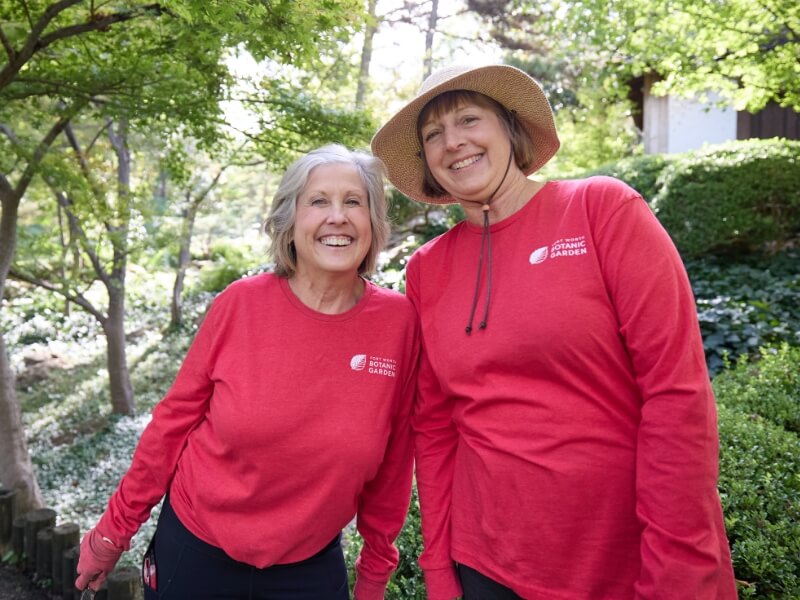Science & Conservation
Botanical Research Institute of Texas
BRIT is a renowned scientific research and conservation center focusing on plant biodiversity, ecology, evolution, and conservation, from local to global scales. BRIT’s resources include a state-of-the-art molecular and structural laboratory, conservation seed bank, an herbarium with over 1.5 million specimens, a botanical press, and a botanical library of over 120,000 volumes.
BRIT researchers conduct original research, deliver professional and popular presentations, and mentor students ranging from undergraduate interns to master’s and Ph.D.’s, the latter in partnership with institutions of higher learning. BRIT research is greatly enhanced by the generous donation of time from community volunteers.
Ongoing Research Programs
BRIT’s expert researchers conduct groundbreaking plant research, share insights through professional presentations, and mentor students at all levels, from undergraduate interns to master’s and Ph.D. candidates, in collaboration with top universities. Community volunteers play a vital role in supporting BRIT’s mission and enhancing conservation research.
Carousel items
-
Texas Plant Conservation Program
The Texas Plant Conservation Program safeguards rare Texas species from extinction, preserving and restoring habitats to keep our state’s native flora thriving.
-
Philippines Program
The Philippines Program documents plant and lichen diversity in threatened southern regions, supporting conservation and expanding global biodiversity knowledge.
-
GGI Gardens Program
GGI Gardens Program unites global botanical gardens to collect herbarium vouchers, preserve genomic data, and create an accessible foundation for biodiversity research.
-
Ferns and Lycophytes Taxonomy and Evolution Program
The Fern & Lycophytes Program unravels diversity and evolution through fieldwork, phylogenetics, and genomics, welcoming new students and collaborators.
-
Ericales Program
The Ericales Program studies the evolution of tea, persimmon, blueberries, and more, uncovering biodiversity and biogeography to protect these vital plants.
-
Compositae Systematics
The Compositae Systematics Program reshapes sunflower family classification, using phylogenomics to unify species data and drive global botanical research.
-
Lichen Diversity and Evolution Program
This program combines traditional methods like morphological, anatomical, and chemical analyses with advanced technologies such as multi-omics and bioinformatics.
-
Urban Ecology Program
The Urban Ecology Program transforms cityscapes into living labs, advancing sustainability, biodiversity, and community engagement through field research.
-
Research Resources
BRIT’s Research Resources page offers access to essential tools and information, including digital portals, the advanced Sumner Laboratory, and the informative Lecture Series.
-
Research Associates
Our Research Associates are the driving force behind transformative discoveries in botany and biodiversity. Their groundbreaking work not only advances scientific knowledge but also contributes to preserving our planet’s natural heritage.
-
Research Lecture Series
The BRIT Lecture Series is designed to create community wide conversation about a diverse range of important and rapidly developing topics.
-
Digital Resources
Explore BRIT’s digital resources, including digitized herbarium collections, mycology, bryophytes, lichens, and more. Access research data, live streams, and citizen science platforms through key portals and archives.
-
Sumner Laboratory
The George C. and Sue W. Sumner Molecular and Structural Laboratory provides fundamental tools for botanical research, conservation, and education that allow the BRIT to fulfill its mission.
Explore the Collections at BRIT
BRIT is home to a diverse range of scientific and cultural collections that support plant conservation, research, and education. These include a world-class herbarium, a living collection of plants, and a long-term conservation seed bank. BRIT also stewards an extensive botanical library and archives, along with BRIT Press. Together, these collections form a vital resource for scientists, students, and plant enthusiasts around the globe.
BRIT Philecology Herbarium
The BRIT Philecology Herbarium contains over 1.5 million plant specimens from around the world, making it one of the largest herbaria in the United States.
BRIT Press & JBRIT
Publication is an integral part of the Botanical Research Institute of Texas’ commitment to scientific research by botanists, including BRIT’s own scholars, through distribution of books and journals across the globe.
BRIT Library
The BRIT Library supports botanical research and education in Texas and around the world. Our collection has been carefully curated and is a valuable research tool for those studying systematic botany, horticulture, natural history and ethnobotany. The BRIT Library houses one of the largest and finest collections of botanical works in the southwestern United States.



